Pediatric Orthodontics
WHEN YOUR CHILD SHOULD SEE AN ORTHODONTIST
Most of the significant growth and developmental changes in the face occur during the first year and a half of life. Additionally, 60% of a child’s facial development is completed by age six, and 90% by age twelve. At McGuire Orthodontics and Facial Orthopedics, we are experts in facial growth and are able to modify and enhance this process. Dr. McGuire recommends an airway and facial growth evaluation as early as age two to ensure proper development.
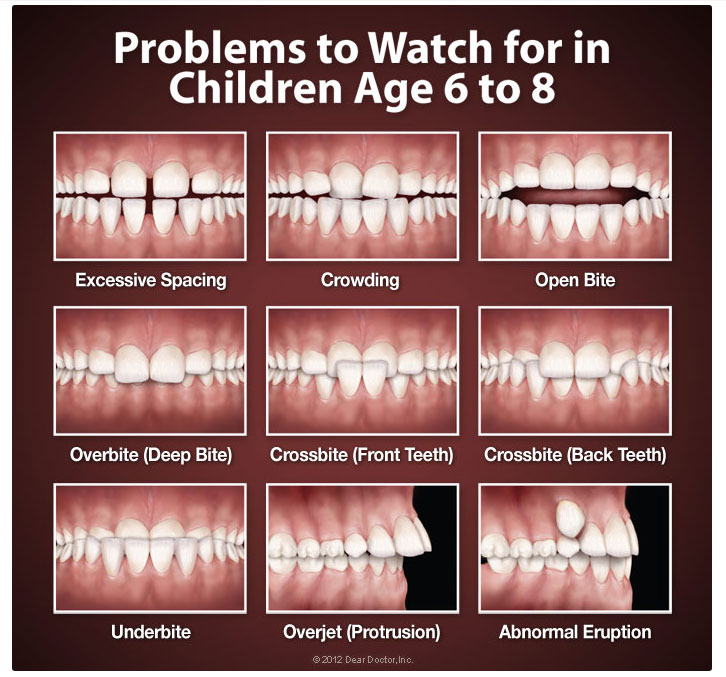
Every child will develop at different rates but, in general, most children will start to get their first adult molars at around six years old. This is just one of the developmental markers which help us to assess the basic alignment of your child’s teeth, both side to side and front to back. Also, it is at this stage that we will be able to tell if there is enough room for all of the permanent teeth in the mouth, if not we can take action.
WHEN EARLIER TREATMENT IS BETTER
At the age of nine to fourteen, all of the baby teeth are gone and almost all of the permanent adult teeth are in position, this is the ideal time to start orthodontic treatment. There are a few conditions that, if caught at an early stage, can be treated much more easily while the natural development and growth are in full swing.
Crossbite. A severe crossbite is when the lower teeth close outside the upper teeth, this is a condition that should be addressed as early as possible. A palatal expander is used to treat this issue. The palatal expander widens the upper jaw painlessly and slowly and is far more effective if used while the upper jaw is still growing. Complicated treatment or even oral surgery may be required if this problem is not corrected at an early stage.
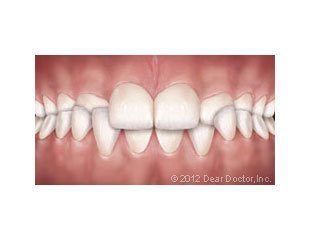
Crowding. This is another issue that benefits greatly from being treated as early as possible. When the jaw is too small to fit all of the permanent adult teeth, crowding occurs. Tooth extraction or a palatal expander might be advised at this point to allow the permanent teeth to emerge from the gums easily and properly. If your child does require braces for a crowding condition, treatment at an early stage will most likely be easier and take less time.
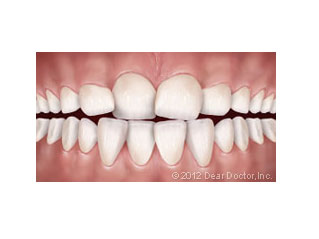
There are a number of other conditions that would benefit from early treatment or intervention. Teeth that protrude, typically front teeth, can lead to self confidence issues with a child and are also more susceptible to fractures or chipping. When the lower jaw grows much larger than the upper jaw, a severe underbite occurs and can cause serious bite issues. There are various appliances that an orthodontist can use to address these problems, such as headgear or braces, and if used at an early stage they can correct these problems and avoid surgery later on.
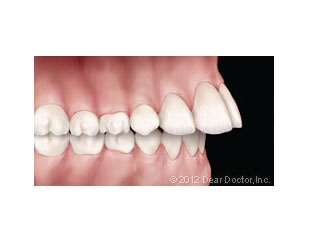
CORRECTING BAD HABITS
We can all pick up bad habits at one time or another, but, there are some situations where a child’s bad habits can actually affect the function and development of their mouth, teeth or jaws. Mouth breathing, thumb sucking and tongue thrusting are examples of bad habits which can cause issues for oral health in children.
During infancy, sucking is a natural reflex, but, you would expect this to stop between the ages of two and four. If it continues beyond this age, the pressure exerted by the thumb on the upper jaw and front teeth can actually change the shape of the jaw and move the teeth. This will lead to a condition known as “open bite” and can even affect speech. Tongue thrusting can also cause an open bite by applying force to the back of the front teeth.
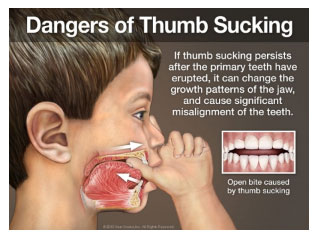
When the mouth always stays open, passing air directly to the lungs rather than through the nose, it is called mouth breathing. This is caused by alterations to the muscle function of the tongue and face. Serious orthodontic problems can occur if this issue is not addressed, as the jaws may grow abnormally. Mouth breathing can begin with a physical issue but can quickly become a habit that is hard to break.
There are many orthodontic treatments available to address all of these issues and can greatly reduce long term impacts if the condition is addressed as early as possible. It is important to contact us and arrange a consultation for your child early as possible because not all of these issues are easy to identify.

